Let us say I have the following abstract interface to a double precision function of single argument
module abstract
abstract interface
function dp_func (x)
double precision, intent(in) :: x
double precision :: dp_func
end function dp_func
end interface
end module abstract
In a different module I define two functions, a simple one g of the type dp_func and a more complicated one f
module fns
contains
double precision function f(a,b,x)
double precision, intent(in)::a,b,x
f=(a-b)*x
end function f
double precision function g(x)
double precision, intent(in)::x
g=x**2
end function g
end module fns
Now a pointer to g can be created as follows
program main
use abstract,fns
procedure(dp_func), pointer :: p
double precision::x=1.0D0, myA=1.D2, myB=1.D1, y
p => g
y=p(x)
end program main
But how one can create a pointer to f(myA,myB,x), i.e., to f at fixed values of a and b, which can be regarded as a function of just 1 parameter, that is, of the dp_func type?
At the end result I want to be able to write something like
p=>f(myA, myB, )
y=p(x)
Comments below suggest that function closure is not a part of fortran standard and that a wrapper function would be a possible solution to it. However, the wrapper must be initialized and this introduces some chances that end user may forget to call the initializer. How one can do it in a clean and transparent way?
EDIT After posting this question and googling with "closure and fortran", I found this example
which I present in picture form to emphasize the highlighting. This was presented in an online course. But I doubt such implicit parameter setting is a good programming practice. In fact, dangling variables like z in this example are perfect sources of errors!
